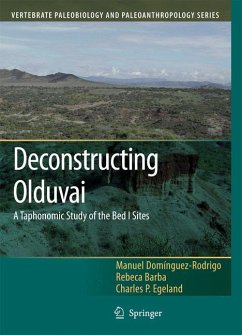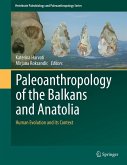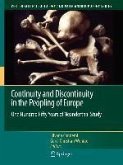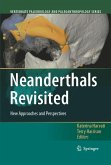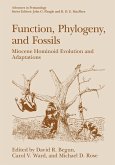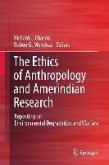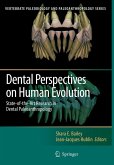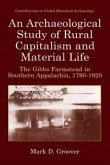The Olduvai Bed I archaeological sites have been at the epicenter of the debate on how early humans behaved. This book presents a new analytical approach that has produced unexpected results: the association of stone tools and faunal remains at most Olduvai Bed I sites is accidental and not related to hominid behavior. This revolutionary analysis shows that current models of reconstruction of human behavior are wrong.
Dieser Download kann aus rechtlichen Gründen nur mit Rechnungsadresse in A, B, BG, CY, CZ, D, DK, EW, E, FIN, F, GR, HR, H, IRL, I, LT, L, LR, M, NL, PL, P, R, S, SLO, SK ausgeliefert werden.
From the reviews:
"The book is divided into 16 chapters. ... The monograph is data-rich, with abundant tables for each studied strata listing species and skeletal part representation, as well as graphical summaries of the locations of each individual surface modification (whether by hominin or carnivore) on bovid long bones. ... Deconstructing Olduvai is an important paleoanthropological contribution ... ." Christian A. Tryon, Journal of Mammalian Evolution, 2008.
"This volume provides a fresh look at an old issue - i.e. that hominins were primary agents in the formation of these sites - and suggests that site formation is heterogeneous and complicated during Bed I times at Olduvai Gorge." Journal of Human Evolution, 31 August 2009
"The book is divided into 16 chapters. ... The monograph is data-rich, with abundant tables for each studied strata listing species and skeletal part representation, as well as graphical summaries of the locations of each individual surface modification (whether by hominin or carnivore) on bovid long bones. ... Deconstructing Olduvai is an important paleoanthropological contribution ... ." Christian A. Tryon, Journal of Mammalian Evolution, 2008.
"This volume provides a fresh look at an old issue - i.e. that hominins were primary agents in the formation of these sites - and suggests that site formation is heterogeneous and complicated during Bed I times at Olduvai Gorge." Journal of Human Evolution, 31 August 2009

